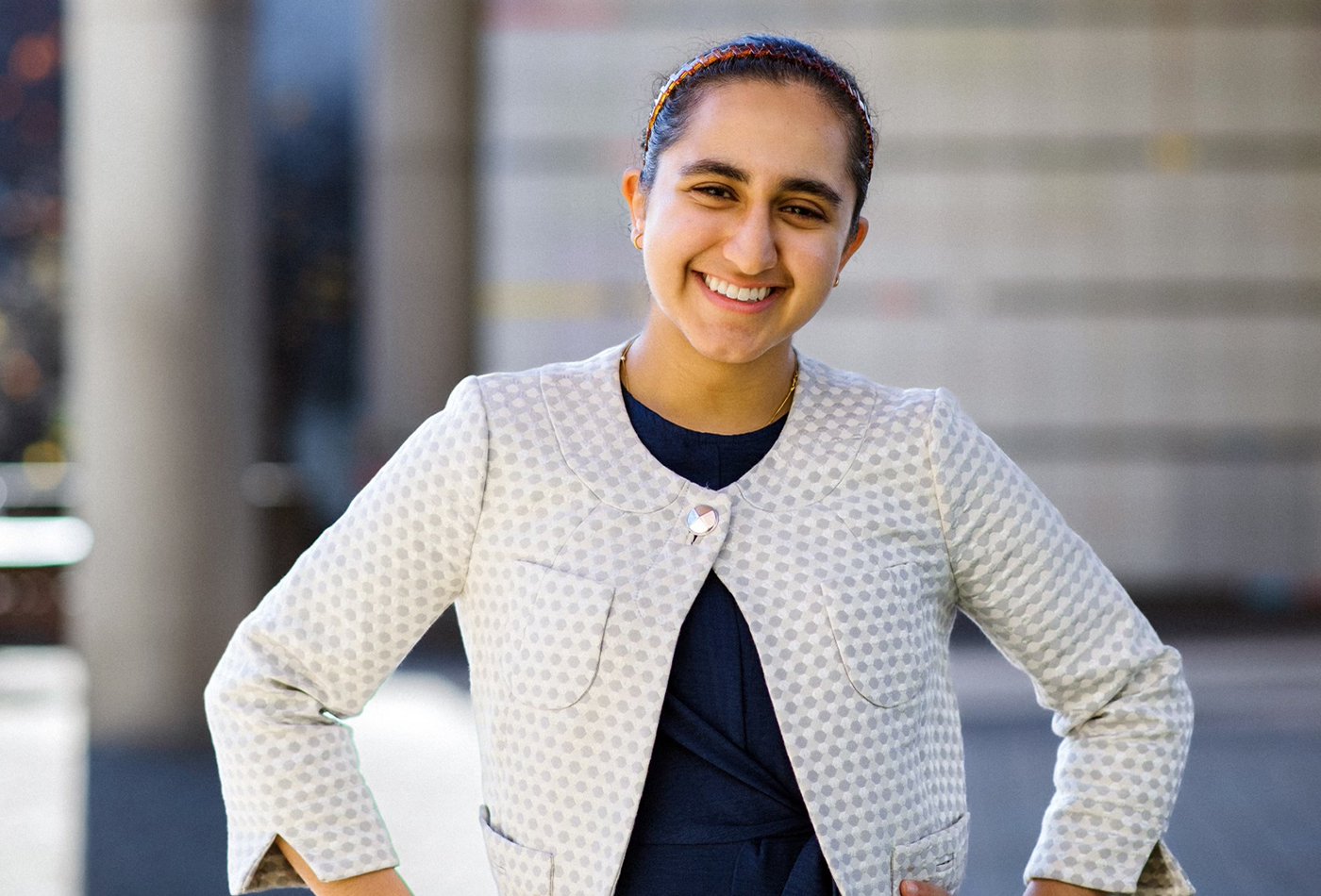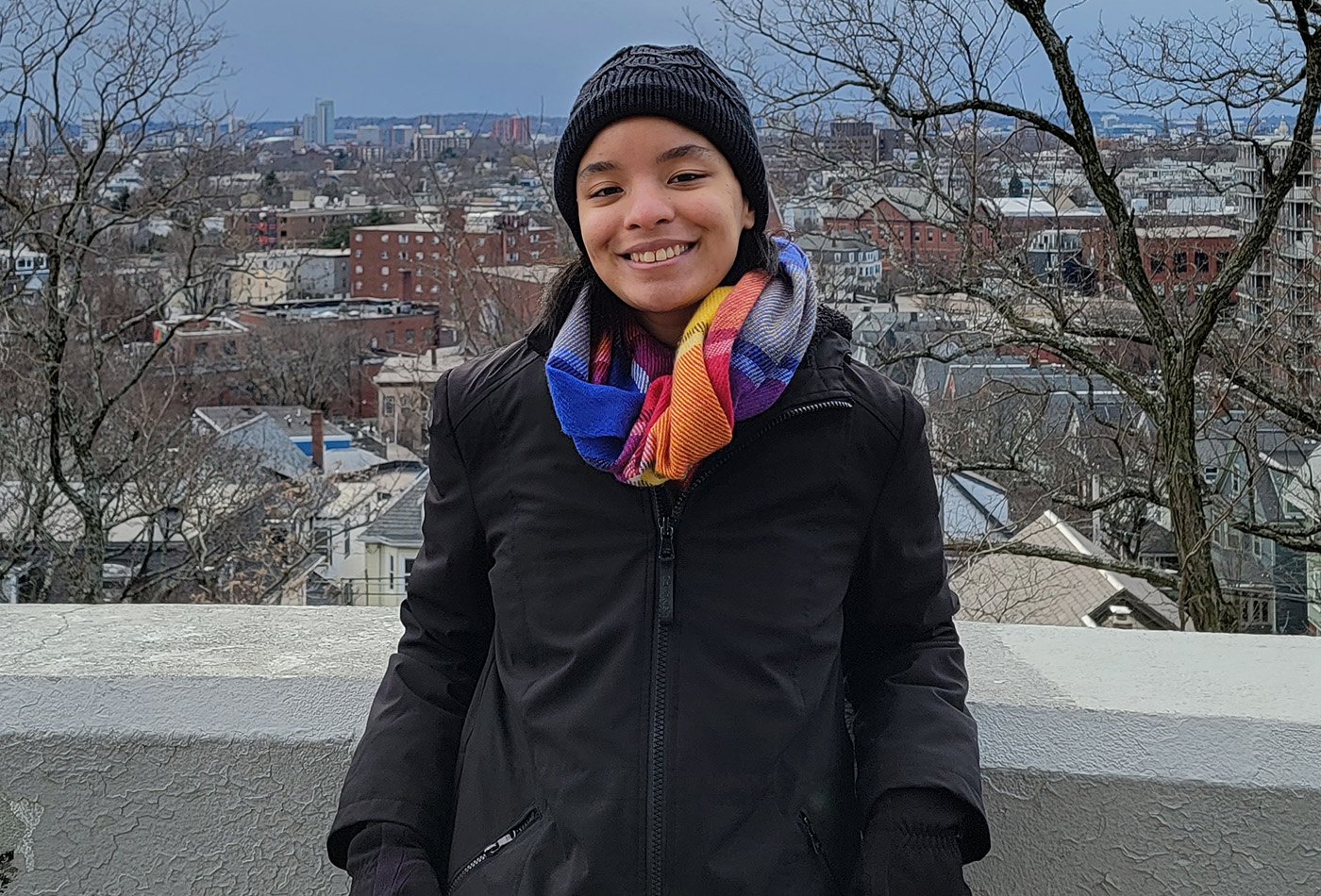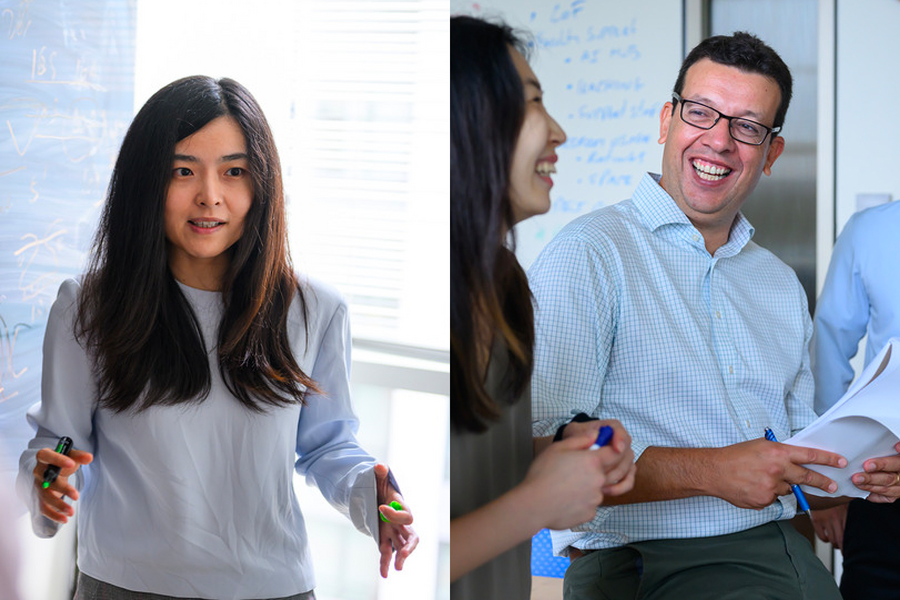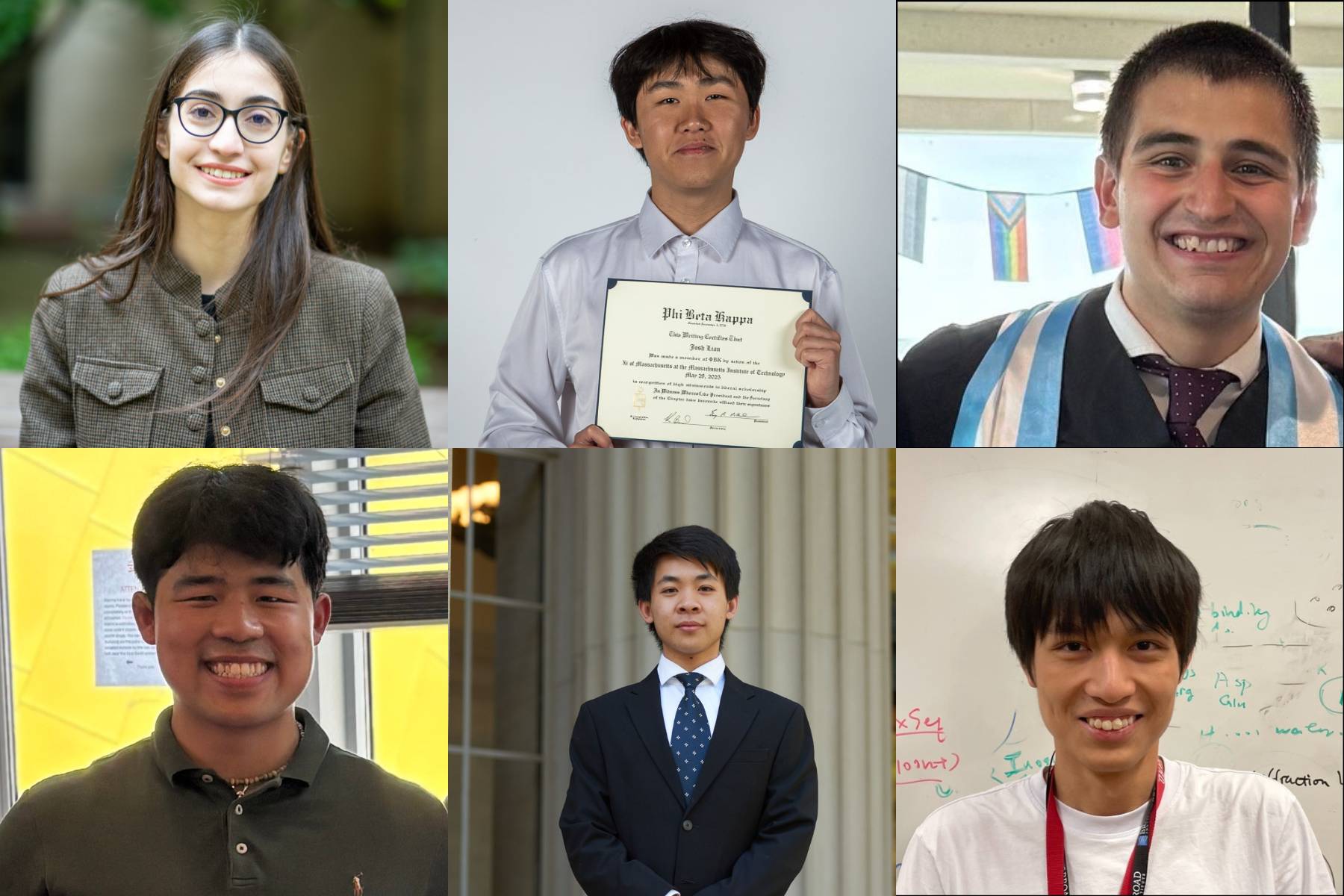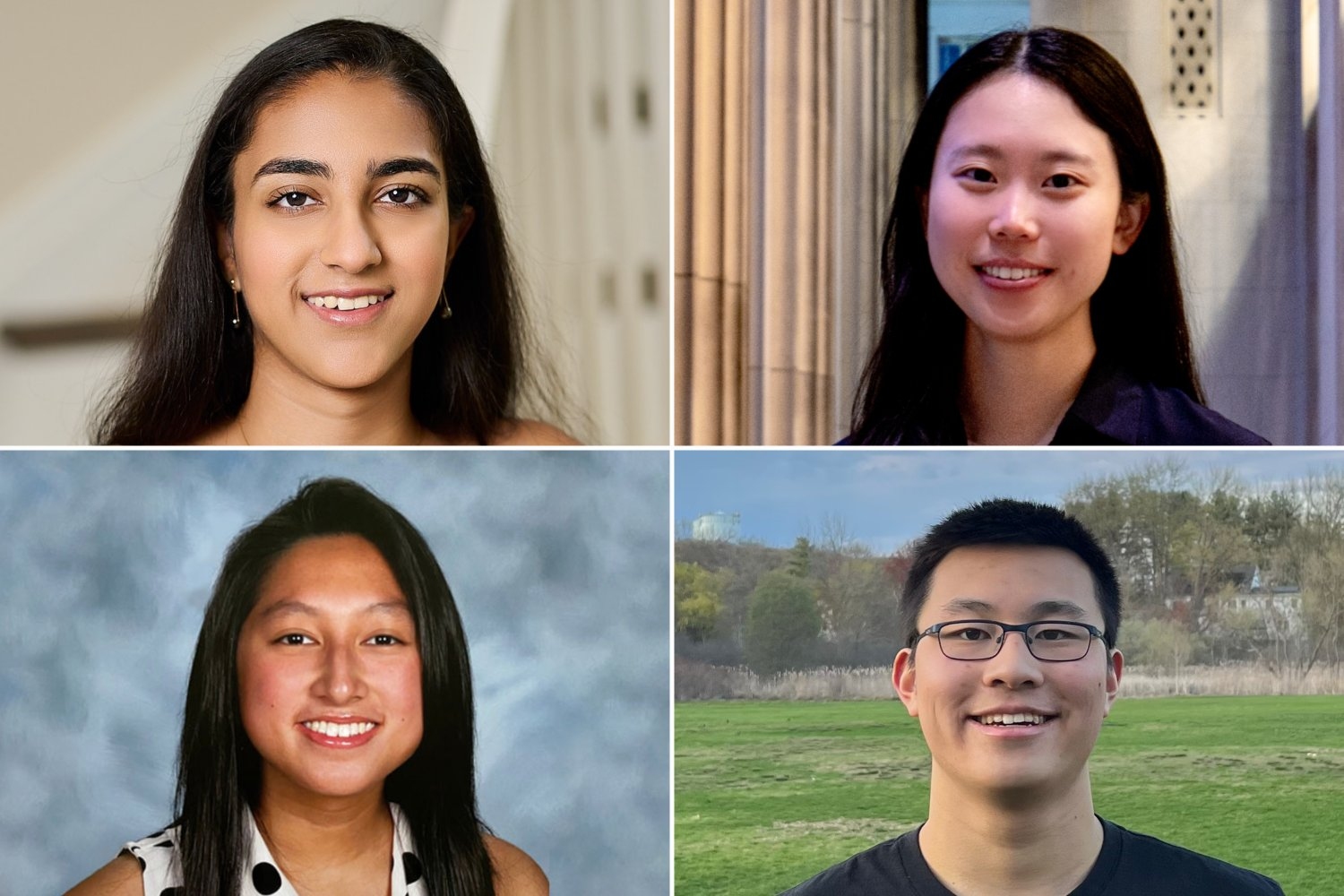Jupneet Singh: Finding purpose through service
“I feel a great connection to my community, and I always want to find a way to give back,” says the Rhodes Scholar and Air Force ROTC wing commander.
As a first-year U.S. Air Force cadet in the Reserve Officers’ Training Corps (ROTC), Jupneet Singh never imagined she would rise to the rank of wing commander by the end of her MIT career. She approached her first year as a trial period without many expectations, but the close-knit community and inspiring leadership compelled her to continue in the program.
As commander, Singh is the highest-ranked cadet in Detachment 365, which includes students from MIT, Harvard University, Wellesley College, and Tufts University. The detachment was recently named best large detachment in the nation by Air Force ROTC. She oversees everything that happens and is the direct contact between the officer and cadet divisions.
Her decision to enroll in ROTC “really came down to believing in the values that the U.S. stands for, specifically freedom of religion,” says Singh, who is Sikh. “My parents were in India in 1985 during the Sikh Massacre, and hearing them talk about it is obviously very painful. Here in the U.S. that’s something that, in principle, doesn’t happen, and that makes me proud to serve.”
While Singh was growing up in Southern California, her family instilled in her the value of service to one’s community and often volunteered at Sikh Gurdwara community kitchens and religious retreats. Her mother would often mention how lucky they were to be able to give back, right in their backyard.
“I felt a lot of support from my community when I was growing up, and I want to make sure that other kids feel that same support and can also succeed and flourish,” says Singh, who has founded two organizations that do just that. “I feel a great connection to my community, and I always want to find a way to give back.”
Singh is a senior majoring in chemistry with a minor in history. In her research at MIT she has examined the biochemistry of human innate immunity and microbial pathogenesis through research on natural products at the Nolan Lab, and investigated fatty liver disease with computational biology at the Shalek Lab.
Following graduation, she will pursue a master’s degree focused on policy at Oxford University as a Rhodes Scholar — the first-ever scholar from the Air Force ROTC program. Then, she’ll commission as a second lieutenant in the Air Force and attend medical school with the goal of becoming a trauma surgeon. Looking ahead in her career, Singh wants to blend health and policy and continue to support grassroots efforts in addition to higher-level policy changes.
“Advocating for health and health care is the foundation for closing inequities in other aspects of life,” says Singh. “If someone isn’t able to access proper health care when they need it, then they can’t focus on education, income, or anything else. It’s also really important to me that whatever policy or programs I support are being looked at from a local, grassroots level. If a lot of changes are enacted but you don’t refer to the communities who are actually affected by them, they cannot be as effective.”
Making a lasting impact
In high school, Singh started the program Tennis for Tots. A longtime tennis player herself, she wanted to increase access to the sport that generally has a high cost to entry. By partnering with her high school’s tennis team, Tennis for Tots was able to provide rackets, balls, and a weekly clinic free of charge for underserved youth across multiple school districts.
Following the onset of the Covid-19 pandemic, Singh found herself spending an unplanned year at home, where she saw an opportunity to start another program that built upon the mission of Tennis for Tots. She worked with the Ventura County Family Justice Center to start Pathways to Promise, a program that provides support to children affected by domestic violence to help them achieve their goals. Pathways offers educational and vocational support through field trips, keynote speakers, and college-bound workshops.
“At big public schools, there may not be the one-on-one attention needed to give these kids motivation or expand their horizons,” says Singh. “This program was something that I was passionate about because while Tennis for Tots was improving the physical wellbeing of kids, Pathways was mental wellbeing, educational wellbeing, and giving social support. The other part that is important is the continuous nature of it. Every month we have this programming instead of just seeing them once a year.”
Singh followed up her work with Pathways to Promise by collaborating on and publishing a research paper as first author, examining domestic violence trends in the wake of the Covid-19 pandemic.
Though she doesn’t plan to return to her hometown in the near future, both Tennis for Tots and Pathways to Promise continue to expand and provide much needed resources to her community, and she returns periodically to stay involved.
Finding moments to be creative
Though the next few years of Singh’s life seem highly prescribed, she’s keeping an open mind to new opportunities.
“I like having a clear path, but within the next few years I’m going to keep creating spaces to take initiative,” says Singh.
The MIT Mock Trial team has kept her creative juices flowing at MIT, and another way Singh flexes her creative muscles is by playing the harmonium, an Indian instrument similar to an organ. Her grandmother was a harmonium teacher, and Singh has been playing and performing in Sikh temples since she was 2 years old.
Singh is also looking forward to her service in the Air Force and the opportunities she’ll have as a physician-leader.
“Being a doctor in the Air Force is so different from being a doctor in the civilian world, in terms of the people you serve and the opportunities you get to implement initiatives and programs so early in your career,” says Singh. “My dream would be to be the Surgeon General. The Air Force fits really well into that path of being able to serve as a doctor and also be a leader.”

